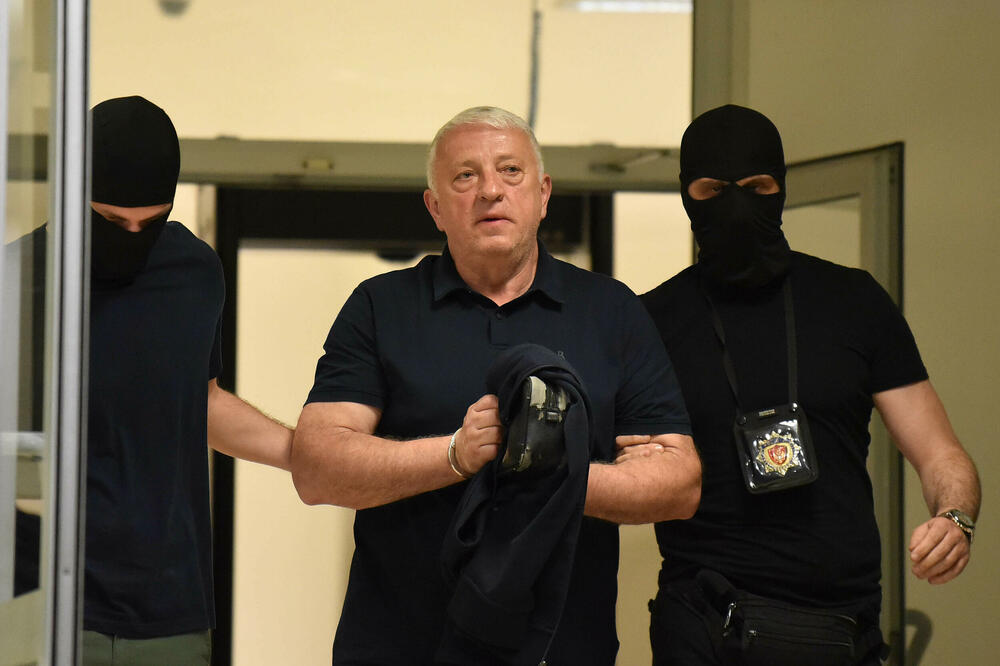April is the cruelest month, he says Eliot...
I don't know if that verse was familiar to me in 1979, I was thirteen years old, and I don't believe I read the poet then Waste lands, but if he did, I would certainly call him on April 15th.
On the 45th anniversary of the 1979 earthquake, the media appropriately recalled that deeply traumatic event. None of those who experienced it will forget the force of that impact. It was also creepy right after the earthquake when the apocalyptic news started to arrive from the coast... Everyone was sitting in front of the buildings with battery-powered radios, it was a key information platform, as they would say today.
In appropriate texts, the obligatory questions are also asked - how would it look today, in order to show the numerous buildings built in the transition period, and no transition is a friend of good construction, as is well known... Would people's reactions be like that again? solidary and dedicated?
Perhaps an interesting point of view would be the question of how the multi-party nature of today's Montenegrin society would be reflected in the events? Party unanimity, dark as it may be, was a very operative mode for quick action (both then and now), what would it look like in our time? How long would it take for politicians to go hunting for the so-called "cheap political points". To accuse and blame each other. And only when it came to the distribution of aid, I can't even imagine what would be done there. Whether such behavior of politicians would be visible and unacceptable to the citizens, that is the most important question. Or even then they would find some sufficiently big and obscure reason to justify "theirs". It is better not to imagine.
The earthquake is much more tolerable as a metaphor than as a reality. And this cruel month also offers such opportunities.
The ongoing arrests could fall under the classic figure of "political-media earthquake". The highest police officers, prosecutors, judges...
To some it looks like an earthquake, and to some it looks like a circus (not that there aren't elements), but, let's remember, the arrest looked similar Marović and his family, in the performance of those who now somewhat disgustedly recognize the elements of the "media circus". The difference is that they stood at the other end of the club then. So much for principle. The nature of the defense of the arrested officials clearly points to the nature of the earlier "relationship". Which only makes things more obvious.
It is cruel to see what kind of persons directed the Montenegrin society, leading significant segments of the system...
None of these people seem too shrewd, one would rather say the opposite - they seem somewhat dull, like real "soldiers" ready for anything... Of course, none of them created the system in which they operated, but with their readiness and unscrupulousness, they were its crucial functional part. As in everything, the question of authorship is crucial. Everything else is cheap demagoguery...
And a detail that, if correct, looks like it comes from Harms: a cop who lends money to a criminal? Spectacular detail. Usually the roles are different. Or just names? Montenegro must pass the world...
In Serbia, the only earthquake they fear seems to be the UN resolution on the genocide in Srebrenica.
Regarding the resolution, they returned to the factory settings again and Vucic and many others...
With this kind of reaction, the "dismayed" Vučić actually "assumes authorship" over Srebrenica. Although the meaning of the resolution and such acts in general is to clearly indicate the true authorship, so that there would be no unnecessary doubts. If the real culprits are named and recognized, then no one else has a reason to bear a mark of shame that does not belong to them.
But characters like Vučić and Dodika as if they don't want that kind of clarification. Why is it more convenient for them to take the blame collectively? Maybe it relativizes/covers up one's own real guilt?
But it's not the fear of an earthquake, but the fear of taking off the mask...
Bonus video:





